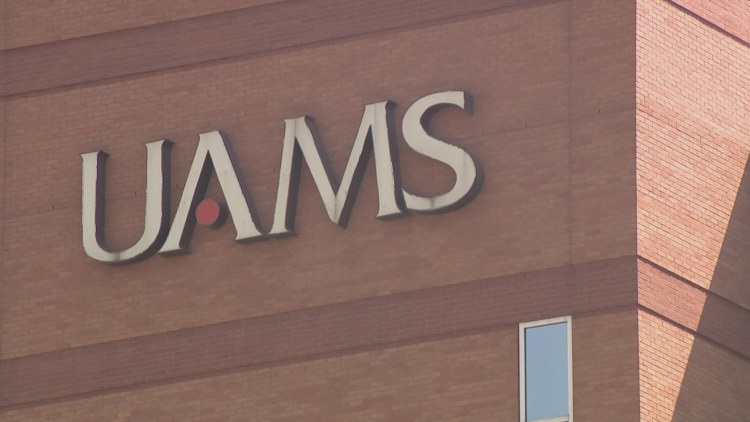LITTLE ROCK, Ark. — The University of Arkansas for Medical Sciences (UAMS) announced that they were awarded a five-year, $2,195,685 million federal grant to study a link between the body’s immune response and patients with certain eye diseases.
The National Eye Institute (NEI) awarded the R01 type grant to a laboratory led by Abdel Fouda, Ph.D., an assistant professor in the Department of Pharmacology and Toxicology in the UAMS College of Medicine who specializes in studying retinal ischemic diseases.
Fouda's lab develops new therapies for ischemic and trauma-induced retinopathy, which are common causes of vision impairment caused by a lack of blood flow to the retina.
“I am very excited that we secured this grant,” Fouda said. “This is the second R-type grant for the lab in just three years. I extend my heartfelt thanks to my team for their hard work and dedication to bring this fund to UAMS.”
Fouda’s team consists of Esraa Shosha, Ph.D., assistant professor in the Department of Pharmacology and Toxicology; Rami Shahror, Ph.D., a postdoctoral fellow; and graduate students Carol Morris, Bushra Zaman, and Christian Mitchell.
Additionally, Fouda helped establish a collaborative, interdepartmental research team with the help of Nancy Rusch, Ph.D., chair of the Department of Pharmacology and Toxicology, and Paul Phillips, M.D., director of the Harvey & Bernice Jones Eye Institute.
“Dr. Fouda’s scientific research bridges lab research and clinical care,” Phillips said. “The mechanisms of disease that Dr. Fouda investigates in the laboratory translate to vision-saving medical care for our patients in the clinic.”
According to the Centers for Disease Control and Prevention, Arkansas has the fourth-highest rate of visual acuity loss in the nation.
Diabetic retinopathy, a condition where too much blood sugar damages the retina, is the leading cause of blindness in adults ages 20-74, per National Eye Institute data.
“I have been fortunate to be able to quickly grow my National Institutes of Health-funded research team at UAMS, and the collaboration between our two departments has catalyzed this success,” Fouda said. “I am truly thankful for the expertise and contributions of our team members in Ophthalmology, Pharmacology, and Toxicology.”



